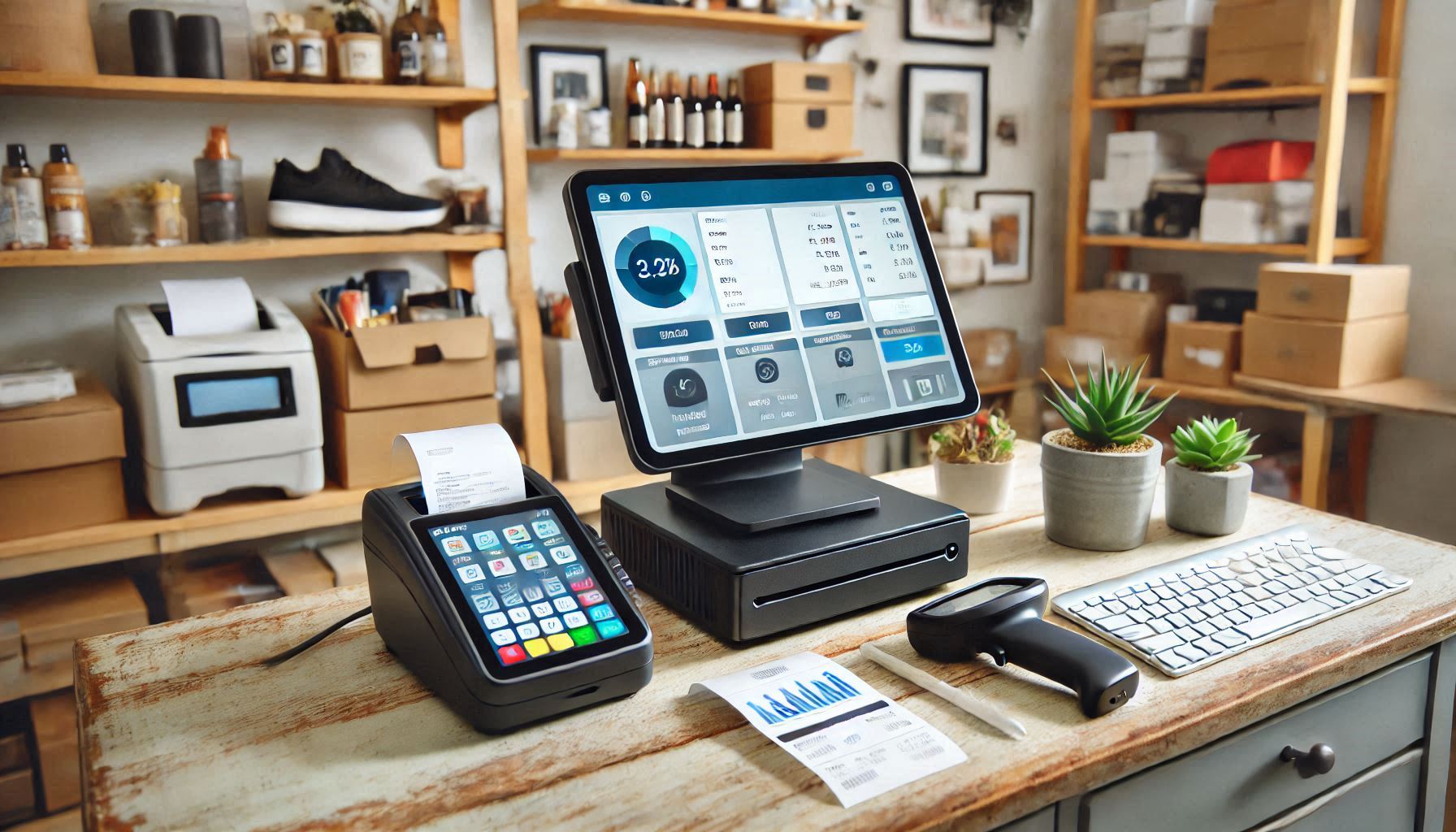How POS Systems Are Helping Businesses Adapt to Hybrid Models

The business landscape has undergone a seismic shift in recent years, with hybrid models becoming the norm for many industries. These models, blending online and offline operations, have emerged as a necessity in response to changing consumer behaviors and technological advancements. At the center of this transformation lies the Point-of-Sale (POS) system. Far from being just a tool for processing transactions, modern POS systems now play a critical role in helping businesses navigate and thrive in hybrid models. This blog explores how POS systems are enabling businesses to adapt to this new paradigm, the features driving their adoption, and the benefits they offer.
The Rise of Hybrid Business Models
Hybrid business models combine traditional brick-and-mortar operations with digital platforms. This approach allows businesses to cater to a broader audience by offering both in-store and online shopping experiences. The COVID-19 pandemic accelerated the adoption of hybrid models as consumers increasingly turned to digital solutions while still valuing physical stores for certain purchases. To bridge the gap between these channels, businesses have leaned heavily on technology, particularly POS systems.
Key Features of Modern POS Systems Supporting Hybrid Models
1. Omnichannel Integration
Modern POS systems provide seamless integration between physical stores and e-commerce platforms. By syncing inventory, sales data, and customer profiles across channels, these systems ensure consistency in operations. For example, a customer can purchase an item online and pick it up in-store (BOPIS), or they can return an item bought in-store via the online platform.
2. Cloud-Based Operations
Cloud-based POS systems enable real-time data access and updates from any location. This flexibility is crucial for hybrid models, where businesses need to manage multiple channels simultaneously. Managers can monitor sales, inventory levels, and customer data across locations, ensuring a unified operational approach.
3. Advanced Inventory Management
One of the biggest challenges of hybrid models is managing inventory across online and offline channels. POS systems with advanced inventory features provide real-time tracking, automated stock updates, and alerts for low inventory levels. This ensures that businesses can avoid stockouts and overstocking, optimizing their supply chain.
4. Mobile POS Solutions
Mobile POS systems allow businesses to bring the checkout experience beyond the traditional cash register. Whether it’s enabling curbside pickups, pop-up shops, or on-the-go sales at events, mobile POS systems provide the flexibility needed for hybrid operations.
5. Customer Relationship Management (CRM) Integration
Hybrid models thrive on personalized customer experiences. POS systems with integrated CRM capabilities allow businesses to gather and analyze customer data, track purchase histories, and offer targeted promotions. This personalization fosters customer loyalty and enhances the overall shopping experience.
6. Contactless Payment Options
As consumer preferences shift towards safety and convenience, contactless payment options have become essential. POS systems equipped with NFC (Near Field Communication) technology and mobile wallet integrations support a variety of payment methods, accommodating diverse customer needs.
Benefits of POS Systems in Hybrid Business Models
1. Enhanced Customer Experience
By providing a seamless shopping experience across channels, POS systems help businesses meet and exceed customer expectations. Features like unified loyalty programs, consistent pricing, and hassle-free returns create a cohesive and satisfying customer journey.
2. Operational Efficiency
POS systems streamline operations by automating tasks such as inventory management, sales reporting, and order processing. This efficiency allows businesses to focus on strategic growth rather than manual administrative work.
3. Data-Driven Insights
Hybrid models generate vast amounts of data, and POS systems help businesses make sense of it. Real-time analytics provide insights into customer behavior, sales trends, and inventory performance, enabling informed decision-making and strategic planning.
4. Scalability
As businesses expand their hybrid operations, POS systems offer the scalability needed to manage growth. Whether it’s opening new locations, adding e-commerce capabilities, or integrating with third-party apps, modern POS solutions adapt to evolving business needs.
5. Cost Savings
By consolidating multiple functions into a single system, POS solutions reduce the need for additional software and hardware. Automation further cuts labor costs and minimizes errors, leading to significant savings over time.
Real-World Applications
POS systems have proven invaluable in a variety of industries adapting to hybrid models:
- Retail: Stores use POS systems to integrate in-store and online sales, manage promotions, and enable services like curbside pickup.
- Hospitality: Restaurants rely on POS solutions for online ordering, delivery, and managing dine-in services seamlessly.
- Healthcare: Clinics and pharmacies leverage POS systems to handle both in-person appointments and digital consultations, ensuring consistent patient experiences.
Challenges and Considerations
While POS systems offer numerous benefits, businesses must address certain challenges:
- Integration Complexity: Ensuring seamless integration between various platforms requires robust POS solutions and technical expertise.
- Cost of Implementation: Upgrading to advanced POS systems can be expensive, especially for small businesses.
- Training Requirements: Employees need training to utilize the full potential of modern POS systems effectively.
- Data Security: Managing sensitive customer and business data demands strong security measures to prevent breaches.
Conclusion
POS systems are pivotal in helping businesses adapt to hybrid models, providing the tools needed to bridge the gap between physical and digital operations. By enhancing efficiency, improving customer experiences, and enabling data-driven decision-making, these systems empower businesses to thrive in an increasingly complex marketplace. As technology continues to evolve, POS systems will remain at the heart of hybrid models, driving innovation and shaping the future of commerce.






